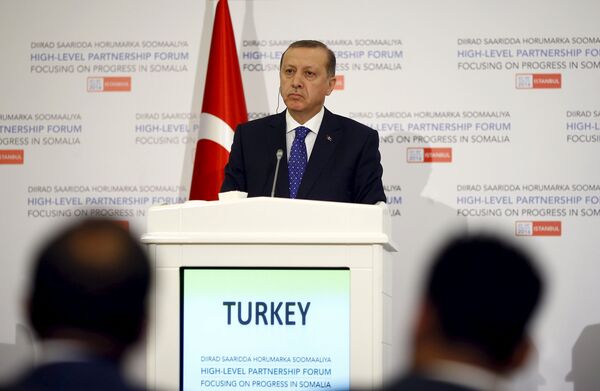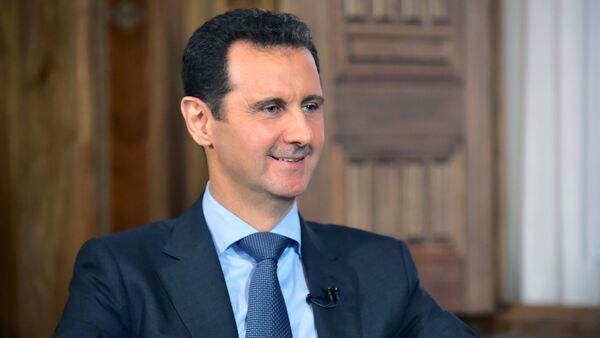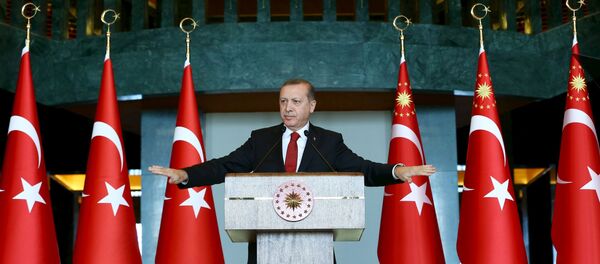Ankara is faced with the dilemma of choosing between pursuing its present foreign policy and returning to the more peaceful strategy it once followed, former vice chairman of the National Intelligence Council (NIC) at the CIA Graham E. Fuller underscores.
"What does Turkey need to do to overcome its present foreign policy fiasco, one of the worst in modern Turkish history? The irony of all this is that those directly responsible for this mess — the team of Recep Tayyip Erdogan (now president) and Ahmet Davutoglu, (former foreign minister and now prime minister) — is exactly the team that one decade ago had made extraordinary steps in creating a new, creative and successful foreign policy," Fuller writes in his analysis for Consortiumnews.com.
"Instead Ankara has opened a dubious, dangerous and futureless coalition with Saudi Arabia," he stresses.
In light of this the question arises: what should Turkey do to mend the deplorable situation?
According to Fuller, firstly, Erdogan should reconcile himself to the idea that the "Assad must go" plan has ultimately failed.
Secondly, Ankara should join the major powers' efforts to bring peace to Syria and reject Riyadh's "absurd vision" of a massive international Sunni army taking over Damascus.
Backing away from boosting the strategic ties with Saudi Arabia, Turkey should improve relations with Iran, Iraq and Russia, the former CIA official believes.
And of course, Ankara must "stop trying to drag NATO into unwise confrontations with Russia."
"The reality is that Moscow's entry into the Syrian equation has all but eliminated Ankara's options and freedom of action there. And Ankara cannot defeat Russia diplomatically. Furthermore, like it or not, Moscow is in fact well-positioned to forge a political settlement in Syria," Fuller elaborates.

The former NIC vice chairman also calls attention to the fact that the Kurdish movement's growth in the Middle East is a reality Ankara has to deal with. It should establish close ties with the Kurdish community.
The Mideast Kurdish population amounts to over 30 million people, while about 14 million of Kurds live in Turkey.
The Kurdish issue is a real stumbling block for the Turkish leadership.
According to Czech-based analyst and journalist Martin Berger, Ankara may alienate the Kurds by waging an outright war on the minority. As a result, the country would find itself amid a civil war. Citing Western military analysts the journalist warned in his recent article for New Eastern Outlook that if there is no change in the political course of the country, Turkey won't be able to preserve its own borders.
"Turkey's undeclared war-like situation is becoming increasingly controversial since Turkey is fighting against an ally (the YPG) of Turkey's Western allies. That is why Turkey has recently been trying hard to convince its Western friends that YPG is another terrorist organization that is no different from ISIL [Daesh] and that it is legitimate to fight against it," the Turkish journalist underscores.
To make matters even worse, Ankara's allies do not seem to be convinced by the Erdogan government's narrative, she noted, adding that Turkey has become a "trouble maker" in the eyes of the international community.
"All this also assumes that Erdogan will act wisely and not sacrifice Turkey's foreign policy interests to his own reckless and divisive drive for greater personal power," Fuller emphasizes, adding that "Erdogan's personal interests are not synonymous with Turkish national interests."
In fact, Erdogan and Davutoglu have no alternative but to make a U-turn in his foreign policy and adopt a more peaceful path he once followed. Otherwise, the politicians would reap the whirlwind they sowed.




